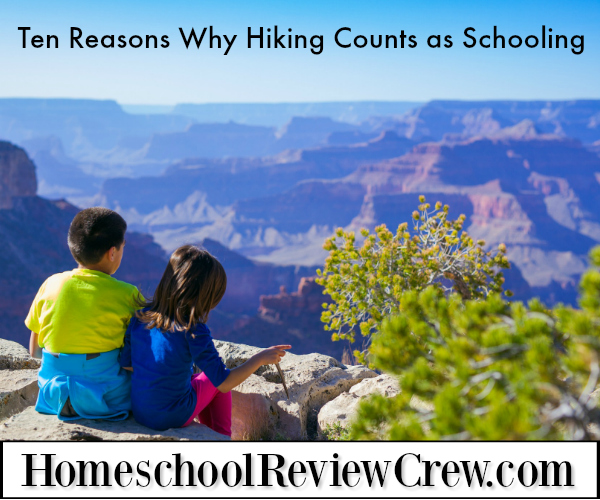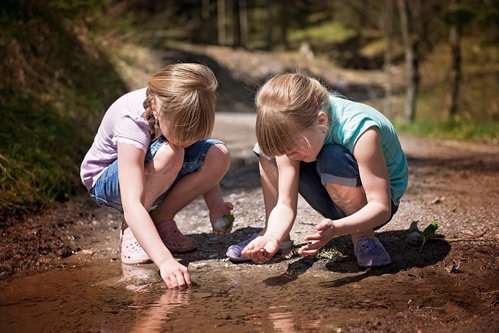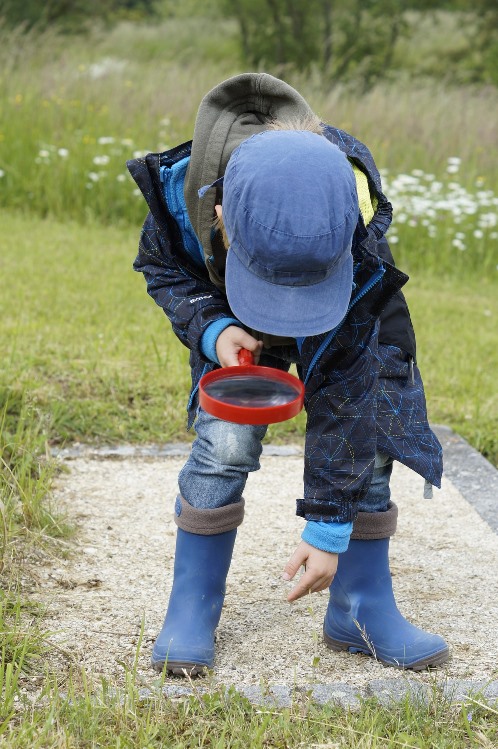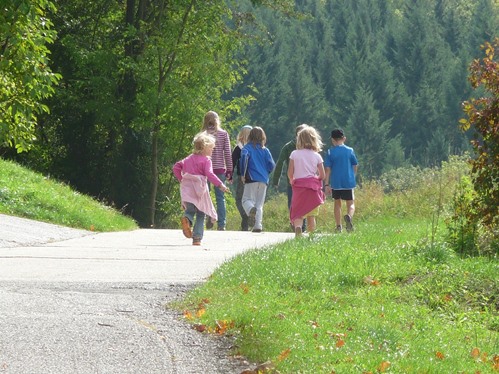
Living on the road full-time with our eight kids, we have more hiking opportunities than the average foundation-based family. The swell (yes, swell) aspect of hiking is that we can count it as a school day. Skeptical? Allow me to make a believer out of you with these “hike-schooling” subject areas:
1. Geology
Regardless of where you hike, there is something about the geology of the area that you and your children can learn. At the very least, pick up a rock and take it home (where legal) to look it up in your rock and mineral handbook—you have one of those, right? (Don’t do this if you’re in the lava beds of Hawaii, because supposedly you will get hit with a hefty fine. Plus, island superstition claims you will be cursed for the rest of your life, which kinda stinks.)
2. Geography
While you’re traipsing over hill and over dale, why not study what a hill and a dale are!

3. Creation Science
National parks and other educational natural areas are rife with evolutionary propaganda, while the nature sights themselves are riddled with proof of Creation. Hiking offers an ideal opportunity for your children to practice discernment and standing up for Scriptural teachings. It is also an excellent time to show that science supports Scripture.
4. Map Skills
From a simple trail map to a more complex topographic map, these never-say-lost, olde school navigation tools give children an important survival skill that will serve them well throughout life…because there will come a time when the GPS turns on you. Just wait.
5. Physical Education
True, hiking is exercise, but learning how to hike properly is educational and purposeful, far more so than hitting a whiffle ball around campus with a golf club like I did in high school. There are plenty of hikers on YouTube willing to show you how it’s done the right way. Plus, you can teach your kids hiking manners, like holding face-smacking branches for the person behind you and who gets the right-of-way.

6. Botany
I feel that I’m insulting your intelligence by saying this, but the flora of every area varies widely. Most national and state parks offer some educational material for identifying plant life. Otherwise, use your sketch pads to document the specimen (art points, anyone?) and look it up in your handy dandy plant handbook.
7. Zoology
While you may or may not see a moose, puma, or bear on your hikes, you are highly likely to see evidence of wildlife almost everywhere you look. Hunt for evidence of bedding areas, scat (nice hiker term for poo), trails, markings, feeding grounds, burrows, and nests. Keep your eyes open for reptiles, birds, and insects, which generally show themselves more often than mammals in high traffic areas. Do a little research beforehand if you can. Otherwise, get out the handbook when you get back. (You seriously need handbooks.)
8. Cooperation
I know this isn’t a school subject, but it should be. Working together to help each other enjoy a safe hike, arriving at a mutual destination together despite varying skill levels, is not altogether different than the skills necessary to work on a construction or business team.

9. Health
At some point during your hike, your kids are going to feel wiped out. And then you’re going to feed them. And then they’re going to feel better. Duh. But what’s really happening inside their bodies? Why did you put nuts and carbs in the trail mix? Why did they drink twice as much water as usual? Why are their hearts pounding? Why are they out of breath at a higher elevation? Talk about it! And, of course, look it up if you don’t know.
10. Math
Mileage, time, amount of water per person, how much your fine will be if you take that rock home with you—math is everywhere, even in nature. IF you really want to get complex, discuss grades of slopes, calculate total elevation gain, and explore caloric burn versus consumption.
The majority of what you can learn about a hiking locale can be found at the visitor’s centers, online, or in nature handbooks. You will undoubtedly learn more from your hike-schooling experience if you prepare ahead, read up, go through museum’s and visitor’s centers, and lug along your enormous collection of nature handbooks. This seems an appropriate time to caution you to not make hike-schooling too schoolish. It’s pretty tough to take anyone with a remaining ounce or two of imagination and zest for real life out on a hike and not have them come away with something interesting and educational that they want to know more about. Let it happen…but in case it doesn’t, be prepared with the handbooks.
—oOo—
Thank you to Christy Bagasao for sharing these tips
My husband: StephenBautistaMusic.com
My blog: TheSimpleHomemaker.com
good reasons to go hiking and still do school. 🙂